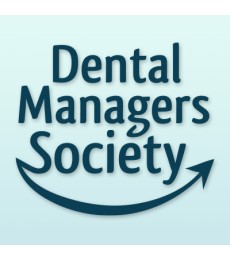Have you received a request for patients’ dental records due to an insurance “utilization review” or audit? Initially, it can seem to be just an administrative task of producing about thirty patients’ dental records over a specific time, such as two years. As many dentists have gone through the process, it can be a nerve-racking period of many undeserving allegations resulting in a costly return of monies for treatment already rendered and pre-approved by insurance companies. The letters from the insurance reviewers, often with little dental training, can be intimidating. But are the allegations of “insurance fraud” they often claim justified?
Insurance fraud allegations imply criminality on dentists’ behalf, which does not correspond with actual definitions of what is considered fraud. “Fraud” requires an intent to deceive. Unless there was an intentional misrepresentation or falsification of records to gain benefits at the expense of insurance companies, it should not be alleged as criminal. Unfortunately, insurance companies are private entities that enforce their own rules, so they get to decide whether submissions meet their standards for accuracy. However, going beyond that power to allege illegality requires a burden of proof of intent that is a much higher standard to meet.
Insurance companies are perfectionists when it comes to judging how complete a dental record must be since, of course, deciding that a dental record is not complete enough to meet their standards makes them money in forcing refunds. Though dentists should be advised to make their treatment notes as complete as possible, insurance companies often treat any amendments to the dental record to explain the reason for the treatments rendered as “alterations” of the record, which they claim are violations of the Massachusetts Dental Regulations requirement of requiring making a “complete record” under the Content of Patient Record section of those regulations. 234 CMR Section 5.14. The American Dental Association advises dentists in a section of a legal advisory manual entitled “Is it OK to Alter a Patient Record?” the exact process of what to do and what not to do when it is necessary to correct a patient record, such as not using white-out, and signing and dating any amendment that is utilized to update a record at a later date. Of course, once again, insurance companies are in the driver’s seat regarding amendments when demanding reimbursements, with only contemporaneous notes allowed to be considered when reviewing treatment notes. They view with extreme skepticism if not dismissing amendments made after the treatment date altogether.
Some conclusions are made during audits that could be determined to indicate possible actual insurance fraud justifiably, and this coincides with the legitimate function of insurance audits to prevent insurance fraud and abuse. Some of those situations involve “upcoding” or billing for more expensive treatment than is provided, billing for treatment not rendered, and treatment provided by an auxiliary above the limits of their license,
Insurers often cite overtreatment or “lack of dental necessity” as a reason for retroactive denial. Insurers often cite in their reviews that erosion, abrasion attrition, or cosmetic reasons are insufficient to justify onlays or crowns. They do not allow payment for those procedures if less expensive amalgam or resin restorations could be used. Often, x-rays submitted to insurers don’t make clear the fractures of decay weighed by the dentist in making these decisions, so it is important to note these in the treatment record. These judgments are often very conservative when made by an insurance company during an audit, but since they make money for the insurers, it is often difficult to fight, akin to fighting city hall. However, it is essential that dentists are not intimidated by allegations of insurance fraud when defending their treatment decisions and that they are made in good faith and in accordance with professional standards.

Contact Info:
Brian Hatch
Hatch Legal Group
8 North Main Street, Suite 403
Attleboro, MA 02703
HatchLegalGroup.com
brianhatch@hatchlawoffices.com
508-222-6400


